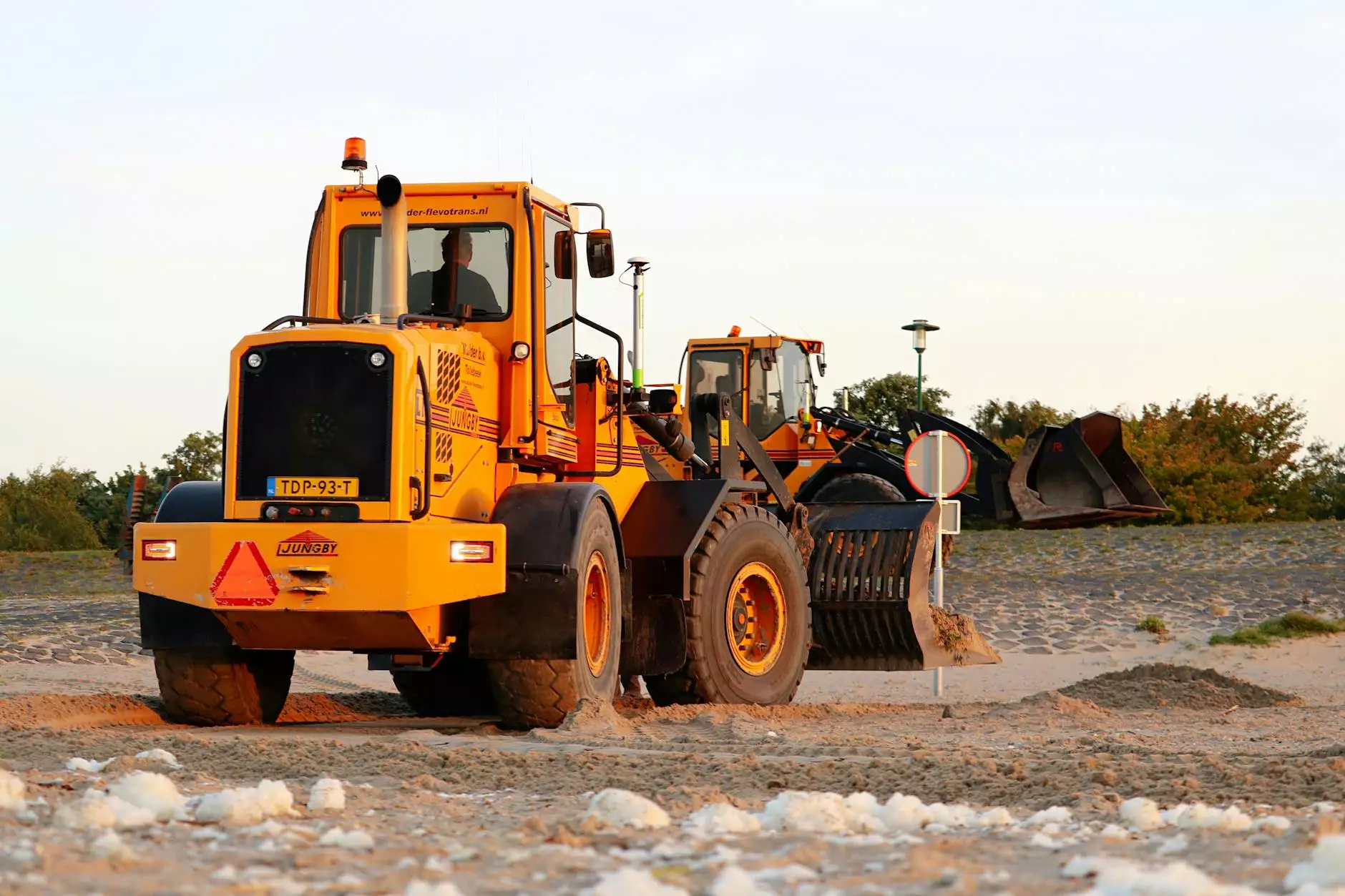Enhancing Modern Agriculture with Advanced Grain Equipment

In the dynamic world of farming, the importance of reliable and efficient grain equipment cannot be overstated. As agriculture evolves with technological advancements, farmers and agricultural enterprises are increasingly relying on sophisticated machinery to maximize yield, improve efficiency, and ensure sustainable practices. This comprehensive guide explores everything you need to know about grain equipment, its vital role in modern farming, and how expert farm equipment repair services can ensure your equipment operates at peak performance.
Understanding the Significance of Grain Equipment in Modern Farming
Grain equipment encompasses a wide range of machinery designed to handle various stages of grain production, from planting and harvesting to storage and processing. The efficiency, durability, and precision of this equipment directly influence crop quality and farm profitability.
In today's agricultural landscape, investing in high-quality grain equipment offers numerous benefits including:
- Increased productivity through faster and more efficient operations
- Enhanced crop quality with precise processing
- Cost savings on labor, maintenance, and energy
- Reduced crop loss owing to reliable machinery
- Environmental sustainability via energy-efficient and eco-friendly equipment
The Core Categories of Grain Equipment
Understanding the different categories of grain equipment helps farmers make informed decisions when investing in or upgrading their machinery. The main categories include:
1. Harvesting Equipment
This category comprises combines, grain headers, and other machinery essential for the efficient harvesting of grains like wheat, corn, soybeans, and barley. Modern harvesting equipment is now equipped with precision sensors and automation features that optimize gathering and minimize crop loss.
2. Post-Harvest Equipment
Following harvest, grains need to be cleaned, dried, and stored properly. Equipment such as grain cleaners, dryers, and conveyors play a crucial role in maintaining grain quality and preventing spoilage.
3. Storage and Handling Equipment
Proper storage facilities, silos, and material handling systems are vital to preserve grain integrity. Advanced storage equipment also includes monitoring systems that track humidity, temperature, and other conditions to ensure grains remain in optimal conditions.
4. Processing Equipment
Processing machinery is used to prepare grains for market, including milling equipment, packing systems, and quality control tools.
The Evolution of Grain Equipment: Innovating Agriculture for the Future
The fast-paced evolution of grain equipment has been driven by technological progress aiming to meet the growing demands of global food security and sustainable farming. Today’s innovations include:
- Automation and smart technology: From GPS-guided harvesters to data analytics for crop management
- Energy-efficient machinery: Reduced fuel consumption and lower emissions
- Modular systems: Flexible setups tailored to specific farm sizes and crop types
- Remote monitoring and control: Mobile apps and IoT integration for real-time equipment management
This technological advancement ensures that farms are more productive, environmentally sustainable, and able to adapt to changing climate conditions and market demands.
The Role of Farm Equipment Repair in Maintaining Peak Performance
Despite the high quality and durability of modern grain equipment, routine maintenance and timely repairs are crucial to prevent breakdowns and extend machinery lifespan. Professional farm equipment repair services, like those provided by TSGC Inc., are vital for ensuring minimal downtime and optimal operation.
Some key aspects of farm equipment maintenance include:
- Regular inspections for wear and tear
- Replacing worn parts before failure occurs
- Calibration of sensors and control systems
- Lubrication and cleaning to prevent rust and corrosion
- Modern diagnostic procedures to identify issues early
By investing in professional repair and maintenance, farmers safeguard their operations, reduce long-term costs, and ensure that their grain equipment operates efficiently during peak seasons.
Choosing the Right Grain Equipment for Your Farming Operation
Selecting the appropriate grain equipment depends on multiple factors including farm size, types of crops, budget, and future expansion plans. Consider the following when making your purchase:
- Capacity: Ensure equipment capacity matches your harvest volume
- Durability: Look for machines built from high-quality materials with proven longevity
- Technological features: Incorporate automation, precision, and data monitoring tools
- Compatibility: Equipment should integrate smoothly with existing infrastructure
- Supplier support: Availability of reliable repair, parts, and technical support services
Partnering with reputable providers like TSGC Inc. ensures you receive expert guidance, quality machinery, and after-sales support that keep your farming operations running smoothly.
Maximizing Yield and Efficiency with Proper Equipment Maintenance
Consistent maintenance of grain equipment leads to better crop yields, lower operational costs, and prolonged machinery life. Farmers should establish a maintenance schedule that includes:
- Daily checks for oil levels, loose bolts, and wear
- Periodic calibration of sensors and control systems
- Annual comprehensive inspections and service by certified technicians
- Updating software and firmware for digital machinery
- Proper storage of equipment during off-seasons to prevent deterioration
Implementing these best practices ensures your grain equipment remains reliable and efficient over many harvest cycles.
Future Trends in Grain Equipment and Farming Technology
The future of agriculture is deeply intertwined with technological innovation, making grain equipment smarter and more sustainable. Emerging trends include:
- Artificial Intelligence (AI) for predictive maintenance and crop yield forecasting
- Blockchain technology for transparent and traceable supply chains
- Solar-powered machinery reducing reliance on fossil fuels
- Robotics and automation for planting, harvesting, and processing tasks
- Advanced data analytics enabling precision farming and resource optimization
Staying ahead of these trends ensures that your farm remains competitive and environmentally responsible in a rapidly changing agricultural landscape.
Conclusion: Investing in Quality Grain Equipment for a Prosperous Future
In today’s competitive farming environment, the role of high-quality grain equipment is more critical than ever. With the right machinery, diligent maintenance, and expert support from companies like TSGC Inc., farmers can significantly increase productivity, improve the quality of their harvests, and achieve long-term sustainability. Whether you are upgrading your existing equipment or investing in new machinery, prioritize durability, technological innovation, and reliable repair services to maximize your farm’s output and profitability.
Embrace the future of farming with intelligent grain equipment solutions and expert support—your farm’s prosperity depends on it.









